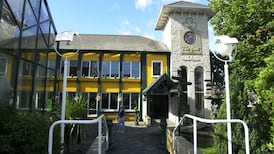More men should be encouraged to enter the public relations and communications sector, the Public Relations Institute of Ireland (PRII) said, after a study it commissioned found 69 per cent of professionals in the business are women.
The PRII Census for 2022, which will be launched today, indicated that the sector is well-paid, with 71 per cent of the 303 respondents receiving pay rises in the past year. The average salary was calculated at €74,000, up from €69,000 in a similar study conducted in 2019.
Men in the industry are better represented at senior levels than they are across the sector as a whole, resulting in an average male salary of €83,000 compared to about €70,000 for women, with these figures unadjusted for either bonus payments or working hours.
PRII chief executive Dr Martina Byrne said there were more women than men in senior PR roles and it was a profession where women could “thrive” and be rewarded at the highest levels. However, men are no longer entering the sector at the same rates, and a wider push for better diversity should include better male representation at junior levels.
Story of a Murder: The Wives, the Mistress and Dr Crippen by Hallie Rubenhold – Rich narrative highlights ‘the fear of the empowered woman’
Chic and airy three-bed bungalow on half an acre near Brittas Bay for €650,000
Masti by Chaska takeaway review: Solid individual flavours at Indian group’s D4 outpost
10 Good Friday traditions you’ve probably never heard of
“Growth in recent years means there are more jobs than there are qualified people to undertake them. We need to have more diversity in the lived experiences and identities of those working in this creative and problem-solving field. To ensure a better gender balance in the future, we need to encourage male entrants to the profession.”
The institute will shortly engage with employers on issues faced by people with disabilities in the sector. About 4 per cent of survey respondents said they had a disability, with half of this group saying it created barriers to work.
The PRII is also hoping to raise the profile of communications careers among school-leavers as part of its campaign to attract more people from underrepresented groups. Some 96 per cent of respondents to its survey identified as white.
The professional body said there were about 3,000 public relations and communications professionals in the Republic, describing this as a “conservative estimate”.
The study, conducted by Amárach on the PRII’s behalf, found that 53 per cent work in-house, 35 per cent work in agencies and 10 per cent are self-employed. Of the 29 per cent who did not receive pay rises in the past year, most were self-employed.
Education levels in the sector are high, with 89 per cent having a professional qualification relating to their work, almost 40 per cent holding a master’s degree or equivalent and 60 per cent of respondents saying they spent time on training or continuous professional development in the past year.
Some 76 per cent said they had a healthy work-life balance, up from 66 per cent in 2019. Although 34 per cent reported dealing with work-related calls and emails outside office hours every day, this has dropped from 46 per cent.
Four-fifths of respondents said they believed they had a good career ahead of them in the sector, with almost half saying they intended to stay in it for the rest of their career.














